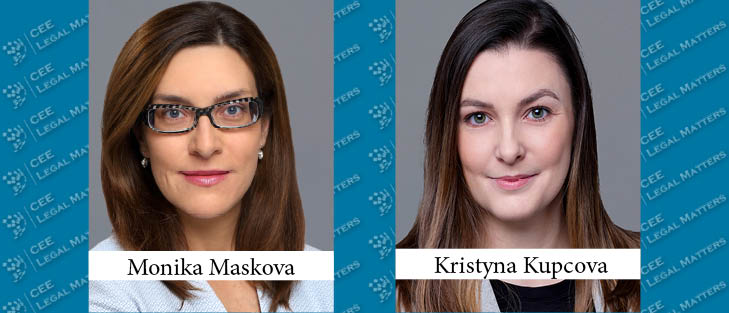Digitization is affecting many sectors and healthcare is no exception. It is a key tool for speeding up and streamlining processes that can significantly improve the quality and availability of medical care. In the Czech Republic, the overall level of digitization in healthcare is still low.
A significant step toward improvement is draft legislation that introduces the first definition of telemedicine into the Czech legal system and aims to promote the maintenance of medical records in electronic form.
Telemedicine
Currently, from all forms of telemedicine, only consultation services provided remotely outside of medical facilities are recognized by Czech law. Regulation of other forms of telemedicine, such as remote monitoring of patients or the assessment of certain health-related data that can be self-measured by patients, is missing. This leads to various legal uncertainties for healthcare providers, such as issues around coverage of telemedicine services by medical liability insurance. The draft amendment to the Healthcare Services Act (Act no. 372/2011 Coll.) has the potential to change this.
The amendment defines telemedicine as healthcare services provided remotely (without the physical presence of the patient) while using information and telecommunication technologies or a certified medical device. This clarifies that telemedicine is a way of providing healthcare services, not a separate form or type of healthcare service requiring a separate license or training. It also means healthcare providers who would like to limit their services to remote consultations only will still be required to set up a duly equipped and approved medical facility where on-site patient visits can take place.
The amendment stipulates that a provider of telemedicine healthcare services must meet various technical requirements. These include: (i) technical requirements for the quality and security of the communications and their encryption, (ii) requirements on verification of the identity of the communicating parties, and (iii) requirements for obtaining and recording the patient’s consent with the recording of remote communication. Details of these requirements will be laid down in implementing legislation that has yet to be drafted.
Medical Records
The amendment changes the approach to defining medical records. Instead of listing individual items that belong in records, it broadly states that it should include all information processed by the provider for the purpose of delivering healthcare services to a specific patient. It explicitly mentions this can include data obtained from the patient or the provider’s own activities, as well as information received from another provider or even other individuals or entities. The amendment clarifies that rules on medical records do not apply to anonymized medical data processed for the purposes of scientific research.
The amendment introduces new rules for the maintenance of medical records. Currently, regulations primarily address medical records in paper form. The new rules will allow providers to keep documentation solely in electronic form. The amendment introduces rules for creating and maintaining electronic medical records, including the conditions for the authorization of entries, etc. Nevertheless, maintenance of medical records in paper form or a combination of paper and electronic forms will be still possible.
The provider will be required to draft written internal rules for processing medical records. The rules must set out appropriate technical and organizational measures to ensure and demonstrate that the processing of medical documentation complies with the law, including personal data protection regulations.
Conclusion
The proposed amendment to the Healthcare Services Act was approved in May 2024 by the Chamber of Deputies. Approval by the Senate and signature by the President are likely to occur in the summer.
For both healthcare professionals and patients, the amendment eliminates current legal uncertainties around telemedicine. This could result in the expansion of telemedicine services in the country.
Furthermore, the amendment supports and motivates healthcare providers to maintain medical records in electronic form. With this step, the Czech Republic is joining the modern trends in healthcare, which are already common practice in many countries and have great potential for the better use of healthcare data for the benefit of patients.
We believe these changes will bring positive effects and will be an impetus for further innovations in the Czech healthcare system.
By Monika Maskova, Partner, and Kristyna Kupcova, Associate, PRK Partners
This article was originally published in Issue 11.7 of the CEE Legal Matters Magazine. If you would like to receive a hard copy of the magazine, you can subscribe here.




